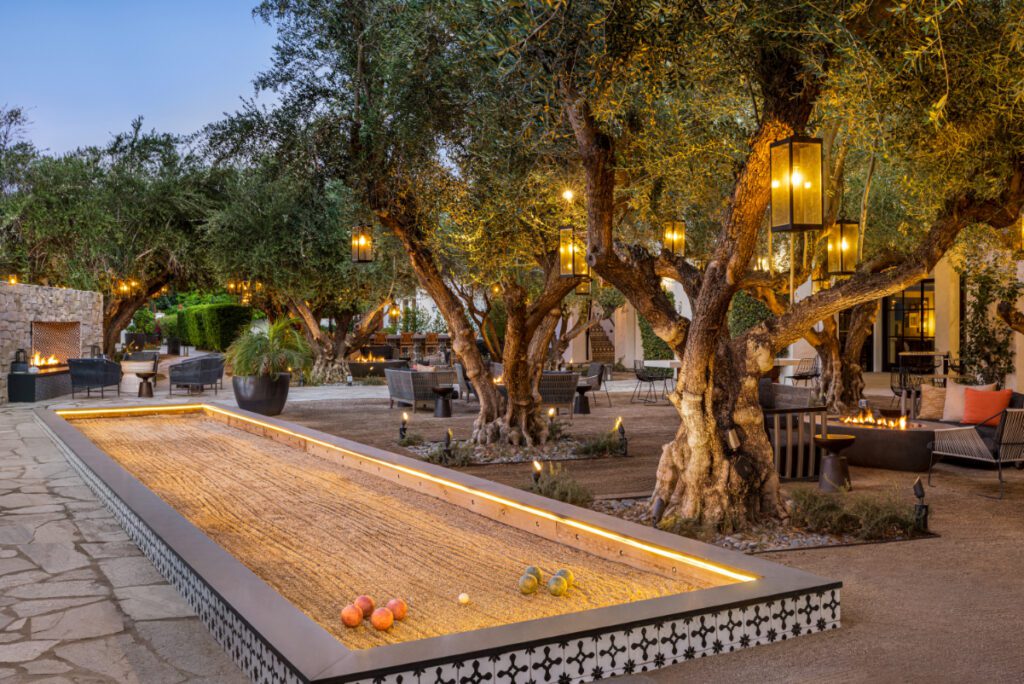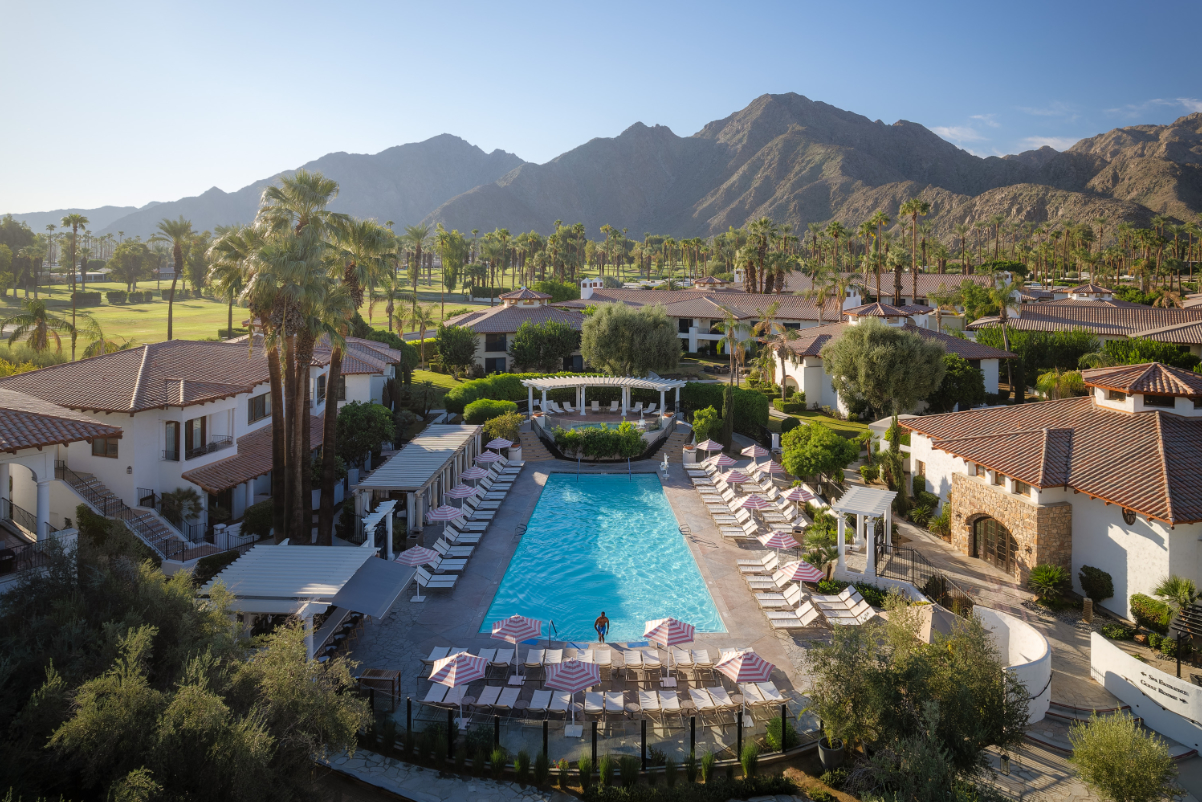Skift Take
If you like to walk through the hotel lobby in your Hawaiian shirt and swim trunks, you might will feel self-conscious at The Ritz-Carlton. But maybe not at a Tommy Bahama property.
The retailer Tommy Bahama is best known for its Hawaiian shirts and board shorts. But the yacht-owning multi-millionaires who like the brand’s easy breezy clothes have wanted a similarly ultra-chill hotel to slip into.
That’s the premise behind Tommy Bahama Miramonte Resort & Spa, the first hotel from the retailer — which opened last month. Tommy Bahama’s headquarters may be in drizzly Seattle, but its heart is in warm-weather spots like Indian Wells, California, where the 215-room hotel is.
“We did about 10 focus groups all over the country, and at the end of each, I’d ask ‘What would you like us to do?’ and they’d say ‘Create a resort,'” said Doug Wood, CEO of Tommy Bahama. “And I would think to myself, ‘That sounds so hard.'”
To get help, Wood’s team joined with Lowe, an LA-based real-estate services firm. Lowe had bought the Miramonte, a down-on-its-luck resort in the Coachella Valley, out of foreclosure. Tommy Bahama’s parent company, Oxford Industries, made a minority equity investment in the project.
The property wasn’t far from Tommy Bahama’s $10 million restaurant in nearby Palm Desert, which they knew was successful at attracting the right clientele.

Translating Tommy Bahama Into a Hotel
Translating the three-decade-old Tommy Bahama brand into a desert resort took some creativity and a $20 million renovation and redesign.
Wood’s team drew inspiration from Tommy Bahama’s restaurant business. Customers didn’t come for the apparel or marketing gimmicks. They came for upscale dining that’s set in a decor that would make the prototypical 50-something, upper-middle-class American father feel comfortable.
They decided to create a new restaurant at the hotel with many offerings you couldn’t get elsewhere. They launched brunch seven days a week, with beachy offerings, such as higher-end seafood dishes and its interpretation of avocado toast.
Pieces from Tommy Bahama’s home furnishings brand were placed in the lobby and five guest suites so that woven rattan, leather-wrapped carved bamboo, and weathered driftwood might transport guests to an island paradise. A Tommy Bahama retail shop at the hotel offers some pieces that customers can only get exclusively there.
“The primary missing ingredient in the 12-acre property was a true sort of indoor/outdoor experience that feels casual but luxurious,” said Mike Lowe, co-CEO of Lowe. “We totally redeveloped the restaurant to allow for outdoor seating in warm weather, and the outdoor space just beyond the restaurant was completely revamped to become, in effect, an outdoor lounge.”
From a branding perspective, signs and decor are understated, with selected signature elements. The Tommy Bahama retail shop is central and colorful in the lobby. The team put in touches for landscaping to give it a tropical vibe without hitting you over the head the way Margaritaville does.

Not Without Risks
Several non-travel brands try to create profitable hotels as brand extensions. RH (Restoration Hardware) has a guest house in New York City and an inn in Napa, California. Muji has hotels in Tokyo, Beijing, and Shenzhen. West Elm aims to open its first properties shortly.
Tommy Bahama benefited from having a retail brand with an upscale positioning. The brand generated $655 million in sales in the first 9 months of the year, with an operating profit margin of 20%.
“We’re in an environment where people basically take brands downmarket because they’re always trying to chase sales,” Wood said. “Look, I’m not doing that. If you want to be around for the long term, it should be more about how you elevate your brand.”
The verdict on the hotel’s success is still undecided as it’s in its early days. Tommy Bahama’s parent company said it only expects a “meaningful but modest royalty income” from the property. (Lowe’s subsidiary management company, CoralTree, runs the property.)
“I can’t say enough about the Lowe group,” Wood said. “The pace at which they accomplished things and their willingness to listen, with their management on-site, has been incredible. We’ve turned down projects all over the country either because the property was wrong or the partners were wrong. With Lowe, it was a fit.”
Wood is sufficiently optimistic that he’s already started dreaming of opening more.
“I want to have about 10 resorts,” Wood said.
Where to next for Tommy Bahama? Wood notes that possibilities include places where “snowbirds,” or upper-middle class people fleeing winter, tend to go, such as Scottsdale, Arizona; Naples, Sarasota, and Fort Lauderdale in Florida; the Kohala Coast of Kona on the Big Island and Wailea in Maui in Hawaii; and several places in Australia.
Have a confidential tip for Skift? Get in touch
Tags: brand marketing, fashion, future of lodging, hotel design, hotel development, tommy bahama
Photo credit: The pool. Source: Tommy Bahama Miramonte Resort & Spa.
